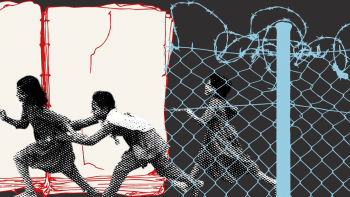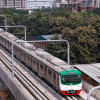Why can’t we stop question paper leaks?

Recently, the Criminal Investigation Department (CID) arrested 12 members of a question leak racket in a case filed in 2020. Reportedly, the members of the racket leaked question papers for medical entry exams at least 10 times between 2001 and 2017. Surprisingly, among those arrested, seven are doctors, suggesting the involvement of high-level offenders. The CID has found that the arrestees had helped hundreds of students to enroll in medical colleges through illegal means, earning crores of taka in the process. While we appreciate the CID's efforts, it is important to dig deeper to find out how this gang operated and secured access to an apparently secure system to prevent future leaks.
In a country where corruption is pervasive, it is perhaps natural that the education sector would not be immune to it. But the way question papers for public exams of all stripes got leaked in recent years is unimaginable. From primary and JSC exams to SSC and HSC exams, from university admission tests to job entry exams, the last decade saw an unprecedented level of activity from question leak syndicates. In case of medical admission tests, question papers were reportedly leaked in 2001, 2003, 2007, 2010, 2012 and 2013. In 2006 and 2015, the leaks are said to have been massive. While some measures were taken by the authorities to prevent this practice after widespread reporting in the media, those involved in leaks were hardly held to account. Against this backdrop, the CID arresting 12 culprits is commendable.
The CID has also come up with some important findings. It has, for example, identified 10 coaching centres, mostly based in Dhaka, which were involved in the leaks. It has also found out how the question papers were leaked from the printing press under the Directorate General of Medical Education (DGME) and how some influential DGME officials helped spread leaked papers all over the country. Furthermore, it has found evidence of transactions of crores of taka from the arrestees' bank accounts. We hope these findings will lead to substantive actions including building a foolproof security system for question papers as well as punishing corrupt officials and their external collaborators as per the law.
The repeated instances of leaking question papers, particularly of medical admission tests, have exposed the weaknesses of the education management. As such, the relevant authorities must take responsibility for their failure to prevent it and ensure that it doesn't happen again. This questionable practice – both by those behind the leaks and their clientele – can only be removed by establishing accountability in the relevant public departments and upholding the true value of education.


 For all latest news, follow The Daily Star's Google News channel.
For all latest news, follow The Daily Star's Google News channel. 










Comments